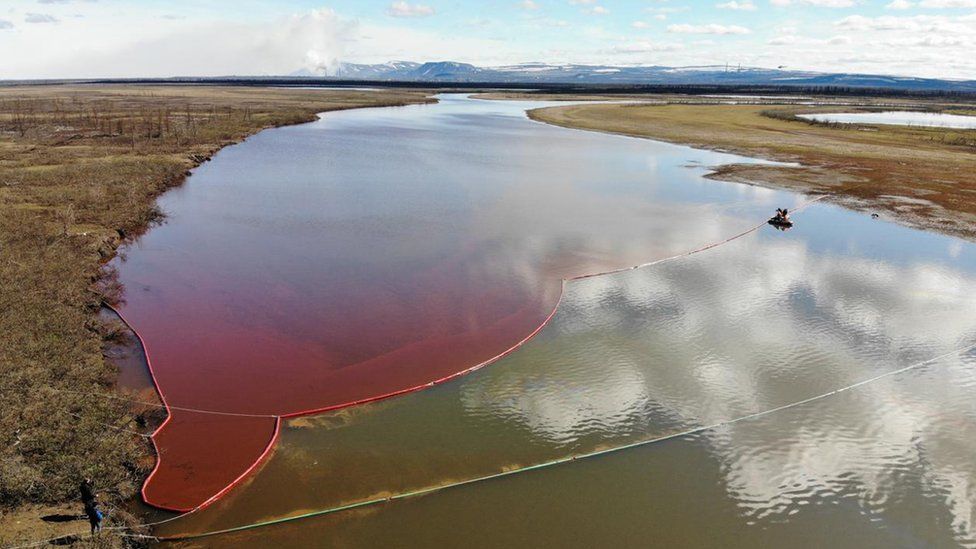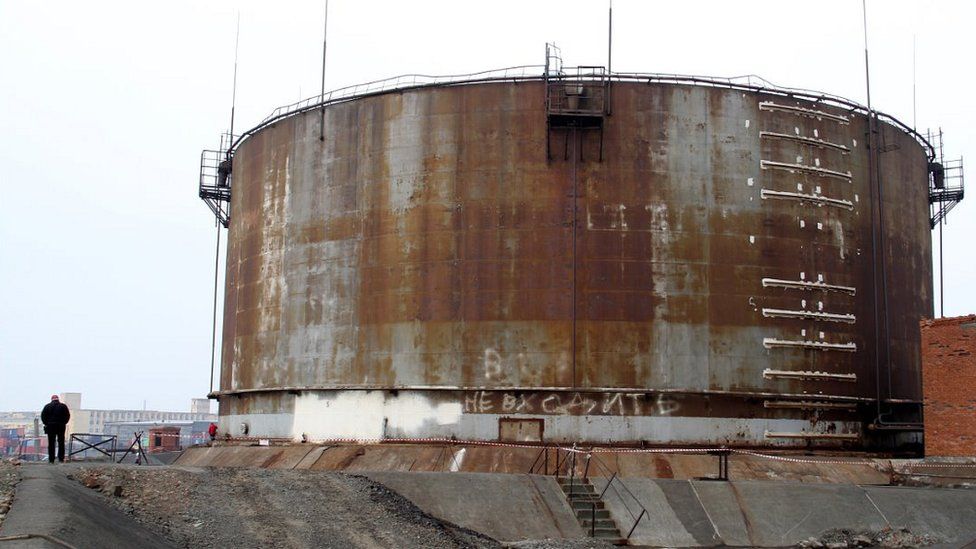A mining firm has paid a record $2bn (£1.4bn) fine over a huge oil spill that caused one of Russia’s worst environmental disasters.
Norilsk Nickel, the world’s leading nickel and palladium producer, said it had paid the fine on Wednesday.
The fuel spill last May saw 21,000 tonnes of diesel pour from one of the company’s storage tanks into rivers and lakes in Russia’s Arctic north.

It prompted President Vladimir Putin to declare a state of emergency.
“I ask you to ensure that this [money] is used primarily to improve the environmental situation in [the city of] Norilsk itself and the surrounding region,” President Putin told a government meeting.
The penalty is the biggest ever issued for environmental damage in Russia, officials say.
Norilsk Nickel, also known as Nornickel, was told to pay the fine by a Russian court in February and chose not to appeal.
Its net profits for 2020 fell by 39% as a result of the fine, Reuters news agency reported.
How did the spill happen?
The diesel oil began leaking on 29 May last year. It is thought to have originated from a rusty storage tank at Norilsk Nickel’s power plant in Siberia.
Investigators believe the tank near Norilsk sank because of melting permafrost which weakened its supports. The Arctic had seen weeks of unusually warm weather – widely believed to be a symptom of global warming – prior to the disaster.
The oil contaminated the Ambarnaya river and surrounding subsoil before drifting about 20km (12 miles) north of Norilsk.
It then entered Lake Pyasino, which flows to the Kara Sea in the Arctic Ocean. In total, the oil contaminated a 350 sq km (135 sq mile) area.
The environmental impact from the spill could last for decades, Russia’s Greenpeace climate project manager Vasily Yablokov said at the time.

Meanwhile, Oleg Mitvol, the former deputy head of Russia’s environmental watchdog, said there had “never been such an accident in the Arctic zone”.
He said the clean-up could cost 100bn roubles (£1.2bn; $1.5bn) and take between five and 10 years.
Delays over reporting the spill prompted criticism from President Putin, but Norilsk Nickel said the incident was reported in a “timely and proper” way.
The fuel spill was followed by a series of smaller incidents in the region, raising criticism of Norilsk Nickel’s environmental and safety measures.
Norilsk is already a well-known pollution hotspot, because of contamination from the industry that dominates the city.
In 2016, Norilsk Nickel admitted that an accident at one of its plants was responsible for turning a nearby river red.
The company reportedly plans to spend some $5.5bn on environmental projects by 2030.